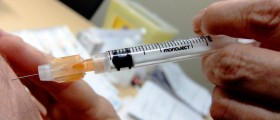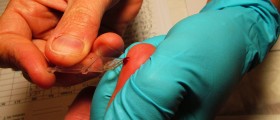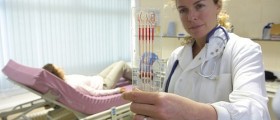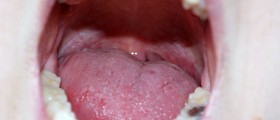
Human Papillomavirus or HPV is one of the diseases that can be transmitted through unsafe sex. HPV is the name for both the virus and disease it causes. However, HPV can cause some other medical problems as well, including different types of cancers, especially cervical cancer. There are more than 100 viruses in this group (HPV), and about the 1/3 of the number can be spread through sexual contact. Any kind of sexual contact (including oral, vaginal and anal sex) with the person infected with HPV can cause HPV infection. Symptoms may be presented as swelling around the genitals and anus, and infection in women can grow further into the cervix.
According to the risk factors, there are two types of HPV: low risk and high risk HPV.
Low Risk HPV
Scientists have been able to identify some 12 types as low risk HPV. They can cause warts on the genitals or abnormal changes in the cervix, but these types are not linked to any cancerous changes. Low risk HPV are also found to provoke lesions on the nose, tongue, tonsils or the larynx. Men might experience itching and burning caused by non-malignant growths (warts) on the penis and scrotum. Sometimes, men might be only carriers of the HPV and be completely asymptomatic (without any symptoms).
Pap smear test is developed to diagnose the abnormalities caused by HPV in women. Gynecologist will extract a sample of cervical cells during the pelvic examination, place the sample in the solution and sent to the laboratory for the testing. All women older than 20 should routinely take Pap smear test at least once every three years. This test enables your doctors to diagnose any precancerous condition or identify present anomalies of the cervical cells.
High Risk HPV
High risk HPV is considered to be more dangerous type of HPV, responsible for development of cancers of the cervix, vagina, vulva or anus in women and penile cancer in men. In some cases high risk HPV can be the case of oropharynx.
Preventing HPV
Safe sex and the health history of your partner are the best ways to prevent HPV infection. Teenagers have been reported as the risk group for this and many other sexually transmitted diseases (STDs) and they must be educated about the potential health hazards associated with STDs.
There is a vaccination for HPV and the vaccine is known as Gardasil, but it’s recommended only for women, aging 12 to 40.




_f_280x120.jpg)












Your thoughts on this
Loading...